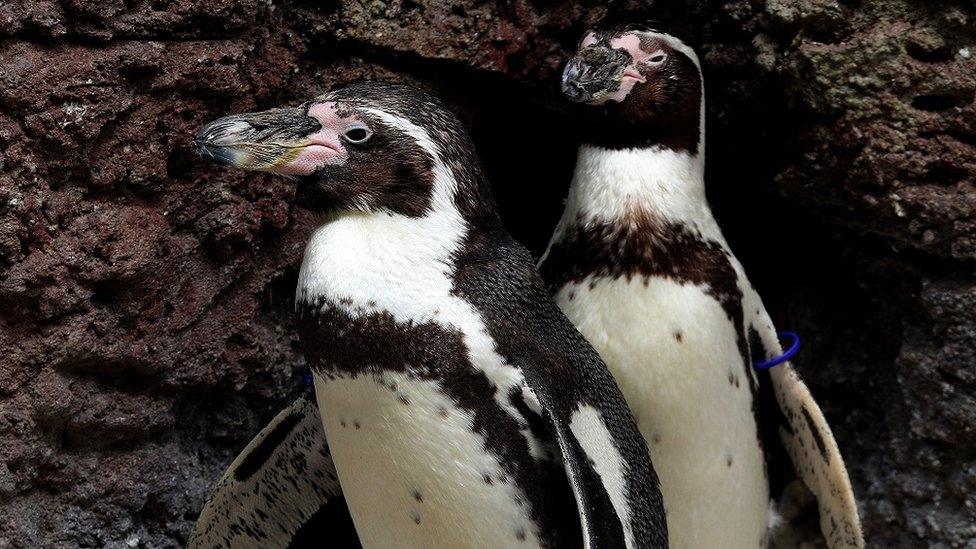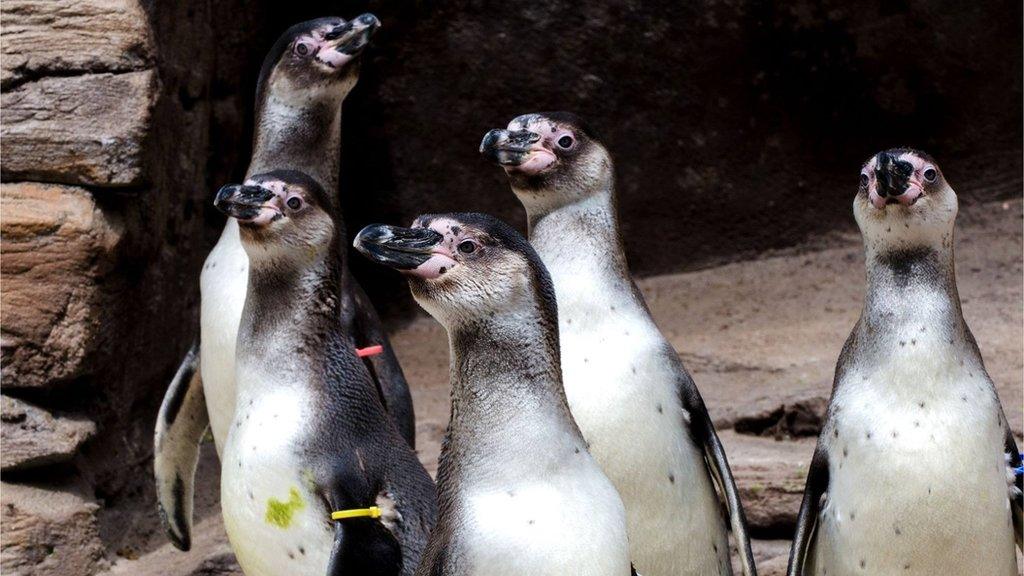Longleat penguins: Last of malaria-stricken birds moved
- Published

Humboldt penguins are native to South America
The last penguins which lived at a malaria-hit enclosure at a safari park have been rehomed.
Longleat in Wiltshire said a number of Humboldt penguins had died after contracting the avian strain of the disease from mosquitoes in 2018.
Avian malaria cannot be passed on to humans, but the park has decided to close Penguin Island to visitors. It was the second outbreak at the park.
The safari park described it as "a difficult decision".
Longleat said it had put measures in place to protect the birds since the first outbreak of avian malaria in 2016, but "despite our best efforts" the park has decided to close Penguin Island in January.
Head keeper Graeme Dick said there had been "some heavy losses in our penguin colony".
He said Humboldt penguins were "particularly susceptible" to malaria.

What is avian malaria?
Avian malaria is caused by a different parasite to human malaria, and is endemic in domestic birds
The human form is transmitted by the Anopheles mosquito, which does not thrive in colder areas of Europe
The parasite which causes the avian strain is carried by the Culex mosquito, which is an established UK species
Although it does not usually kill, it can be lethal to species which have not evolved resistance to the disease, such as penguins

Mr Dick said the remaining penguins would be "moved on to a nice, new home" and the enclosure would be "repurposed for another species".
Humboldt penguins are normally found around coastal areas of Peru and Chile.
They are listed as "vulnerable" by the International Union for Conservation of Nature, which means they are at immediate or imminent risk of becoming endangered.
Related topics
- Published7 December 2018

- Published20 September 2016
